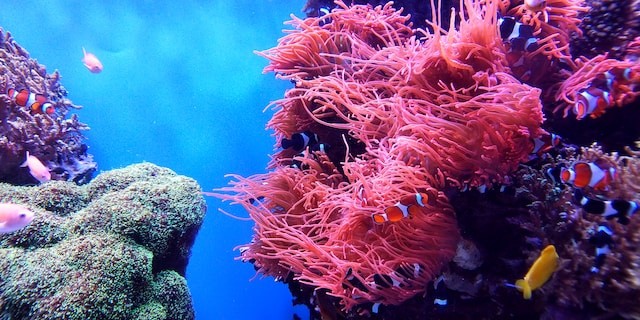
A Chlamydia-like bacteria was recently found in corals of the Great Barrier Reef by scientists. This research may offer vital information about coral microbiomes and their potential effects on coral reef health.
Chlamydia-like Bacteria
The Australian Institute of Marine Science, the University of Vienna, and the University of Melbourne collaborated on the study.
The study discovered two distinct bacterial groups in the coral tissue, one of which is Endozoicomonas and closely matches the bacteria that cause Chlamydia (Chlamydiales).
The research, which was supported by an ARC Laureate Fellowship, further complicates the understanding of coral reef health.
Dr. Justin Maire, the study's principal investigator from the University of Melbourne's Faculty of Science, said that corals had never been known to harbor any members of the bacterial group Chlamydiales, which includes the agents that cause chlamydia infections in mammals.
Maire and his team discovered that these bacteria steal nutrition and energy from their hosts in order to survive after collaborating with Chlamydiales experts Dr. Astrid Collingro as well as Professor Matthias Horn from the University of Vienna.
There is still not enough data to know whether the novel Chlamydiales are harmful or helpful to corals, although they share many characteristics with mammalian diseases.
Other coral-associated bacteria may provide this bacterium with nutrients and energy.
Additionally, he suggested that it is possible for the bacteria residing inside coral tissues to interact with one another.
The other bacteria discovered, Endozoicomonas, is known to be common in corals and is generally seen as beneficial due to its ability to create B vitamins and antibiotic chemicals, according to Professor Madeleine van Oppen, the study's senior author from the University of Melbourne.
The creation of bacterial probiotics for corals, which can increase their resilience to temperature fluctuations and survival rates as a result of climate change, is one of the main areas in the laboratory, according to van Oppen.
The roles of coral-associated bacteria are little understood, and this new study will help experts determine whether probiotics are a workable option and whether bacteria like Endozoicomonas are the ideal candidates for the task, Sci Tech Daily reported.
This study, done by van Oppen and her team, was recently published in the journal Science Advances.
Great Barrier Reef
A large and intricate ecosystem, the Great Barrier Reef was created by millions of corals. Each of those corals contains a miniature, equally complicated ecosystem inside of it. The thousands of bacteria that make up this community, known as the coral microbiome, aid in the feeding, growth, and well-being of corals.
A coral's body contains a distinct collection of microorganisms in each area. The inhabitants of the coral gut and outer epidermal layers perform functions that are distinct from those of the inhabitants of the coral skeleton.
It's interesting to note that research on the human microbiome has shown that various bodily areas, such as the skin and stomach, have various microbial landscapes with distinct functions.
Both the human and coral microbiomes are involved in a wide range of survival-related processes, such as the removal of waste or the absorption of nutrients from meals, according to the Great Barrier Reef Foundation.
Related Article : Great Barrier Reef Islands Named as World's Best Awards Winner for 2023
© 2026 NatureWorldNews.com All rights reserved. Do not reproduce without permission.





